South Phoenix Rules - [3]
But, I realized, I had more assholes than I had bullets.
Peralta has said I’m good in a crisis, for an egghead. Yet my lungs throbbed with fear. The reason was simple: outside of this wide intersection of hell, I had never had more to live for.
If representing turned to violence, I had no good options, only one risky hope. One hope-for me and the little girl and everybody who would go up in the conflagration that would result that hot day. I wondered for a nanosecond if the young cops even knew the term any longer. I unhooked my badge and slipped off the holster. I untucked my dress shirt, rose up in the seat, and slipped the Python uncomfortably into my slacks behind my back. If representing turned to violence, there was only one response:
South Phoenix Rules.
I filled my lungs, reached for the car door, and started to open it when the tanker driver ambled over, unhooked his hose, and miraculously the gas pumps started to work.
Part 1: The Sweet Season
1
I drove home in the light rain, watching the moisture slowly dissolve the dust that had accumulated on the windshield, then be swept aside by the wipers. The trunk of Lindsey’s aging Honda Prelude was full of boxes, and the car rode low in the back. It was late December and cold for Phoenix, in the low fifties, the sky was overcast, and I wore my best suit. Up Third Avenue, the car slipped into the Willo district with its historic houses, big trees, and cooling lawns. Nearly every street had For Sale signs, a vain effort in the real-estate crash. “Willo Block Watch 9-1-1” signs had also recently proliferated in the yards, which irritated me, playing into the suburban stereotype of these neighborhoods. The really lurid crimes all happened out in the newer subdivisions.
I stopped behind a school bus letting out two children who walked east into the block of century-old bungalows on Holly Street. No children live on my block of Cypress Street. When I was their age, the neighborhood was full of kids, but it didn’t have a name then. It was just a neighborhood of old houses and we all walked or rode our bikes to Kenilworth School, half a mile away. Rich kids from Palmcroft, poor kids from south of Roosevelt and the rest of us-we all went to the public school. We did duck-and-cover drills and made lifelong friends. Now the children in the neighborhood go to private schools and Kenilworth is all Hispanic and poor.
Turning onto Cypress, I saw the FedEx truck pull away from our house, the 1924 Spanish colonial with the big picture window. The tamale women were working their way toward me. It was the last week of December but I was grateful they were still peddling the homemade Christmas treat. I parked the Honda in the carport, let the boxes in the back be, and waited on the front porch. As usual, the younger woman with the good English approached courteously; the older one, perhaps the chef, stood back. I greeted them both in Spanish and held out fifteen dollars for a plastic bag of tamales. Now I had dinner.
The low sun was cutting through the clouds, hitting the Viad Tower on Central, two blocks away, just right to make it glow. It was the most interesting skyscraper in Phoenix’s otherwise drab modern skyline. It was in foreclosure. On the doorstep was a square box addressed to Robin. I took the tamales in first, left them on the kitchen counter, and returned for the parcel. It was heavy. I hefted it up the staircase, past the floor-to-ceiling bookshelves, and placed it on the landing that led to the garage apartment. The apartment had its own entrance from the alley, admittedly on creaky old stairs. But Robin always came in the front door and used the open walkway that led from the landing, across the interior courtyard, to the south entrance of the two-room pad.
I didn’t want Robin living there, even if she was Lindsey’s sister. I didn’t trust Robin. But Lindsey insisted that she stay; they had been separated for many years before she showed up in Phoenix outside a murder scene one afternoon. Lindsey’s stubbornness about this only increased when Robin lost her job. She was a curator for a private art collection owned by one of the most prominent real-estate financiers in the city. The market collapse took down all his risky bets, and he put a nine-millimeter in his mouth. His art collection was seized. The empty shells of the projects he had funded were all over town.
Downstairs I went into our bedroom and slid off the heavy.357 in its holster, placing it in the drawer of the bedside table. Just two months ago I had been pricing gun safes. The drawer would do. I allowed myself a moment’s smile: all the years Peralta had teased me about my attachment to what he called “my cannon” in an era where all the deputies carried Glocks. But it was only a moment. I kept the suit on, stared at myself in the mirror too long. Then I went into the kitchen and made a martini. Beefeater gin from the freezer, a splash of Noilly Prat vermouth, olives, stirred-the way Lindsey likes it. I settled into grandfather’s leather chair in the office, tempted to read. On the top of my pile was David Kennedy’s
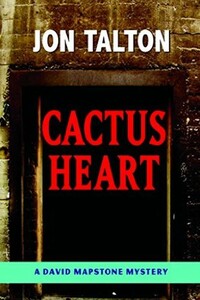
In this "prequel" to the popular David Mapstone mysteries, author Jon Talton takes us back to 1999, when everything dot-com was making money, the Y2K bug was the greatest danger facing the world, and the good times seemed as if they would never end.It was a time before David and Lindsey were together, before Mike Peralta was sherriff, and before David had rid himself of the sexy and mysterious Gretchen.In Phoenix, it's the sweet season and Christmas and the new millennium are only weeks away. But history professor David Mapstone, just hired by the Sheriff's Office, still finds trouble, chasing a robber into an abandoned warehouse and discovering a gruesome crime from six decades ago.Mapstone begins an investigation into a Depression-era kidnapping that transfixed Arizona and the nation: the disappearance of a cattle baron's grandsons, their bodies never found.
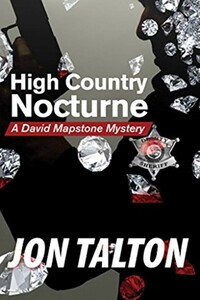
A cache of diamonds is stolen in Phoenix. The prime suspect is former Maricopa County Sheriff Mike Peralta, now a private investigator. Disappearing into Arizona's mountainous High Country, Peralta leaves his business partner and longtime friend David Mapstone with a stark choice. He can cooperate with the FBI, or strike out on his own to find Peralta and what really happened. Mapstone knows he can count on his wife Lindsey, one of the top "good hackers" in law enforcement. But what if they've both been betrayed? Mapstone is tested further when the new sheriff wants him back as a deputy, putting to use his historian's expertise to solve a very special cold case.
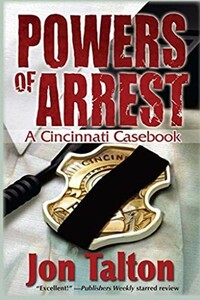
Cincinnati homicide Detective Will Borders now walks with a cane and lives alone with constant discomfort. He's lucky to be alive. He's lucky to have a job, as public information officer for the department. But when a star cop is brutally murdered, he's assigned to find her killer. The crime bears a chilling similarity to killings on the peaceful college campus nearby, where his friend Cheryl Beth Wilson is teaching nursing. The two young victims were her students. Most homicides are routine, the suspects readily apparent.
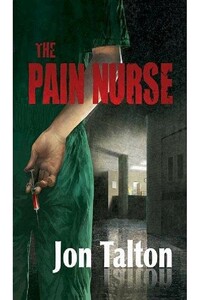
Cheryl Beth Wilson is an elite nurse at Cincinnati Memorial Hospital who finds a doctor brutally murdered in a secluded office. Wilson had been having an affair with the doctoras husband, a surgeon, and this makes her a aperson of interesta to the police, if not at outright suspect. But someone other than the cops is watching Cheryl Beth.The killing comes as former homicide detective Will Borders is just hours out of surgery. But as his stretcher is wheeled past the crime scene, he knows this is no random act of violence.
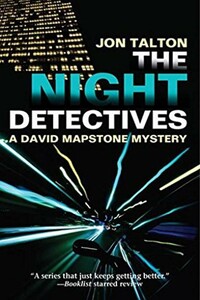
The private-detective business starts out badly for former Phoenix Deputy David Mapstone, who has teamed up with his old friend and boss, Sheriff Mike Peralta. Their first client is gunned down just after hiring them. The case: A suspicious death investigation involving a young Arizona woman who fell from a condo tower in San Diego. The police call Grace Hunter's death a suicide, but the client doesn't buy it. He's her brother. Or is he? After his murder, police find multiple driver's licenses and his real identity is a mystery.

В книге рассказывается история главного героя, который сталкивается с различными проблемами и препятствиями на протяжении всего своего путешествия. По пути он встречает множество второстепенных персонажей, которые играют важные роли в истории. Благодаря опыту главного героя книга исследует такие темы, как любовь, потеря, надежда и стойкость. По мере того, как главный герой преодолевает свои трудности, он усваивает ценные уроки жизни и растет как личность.
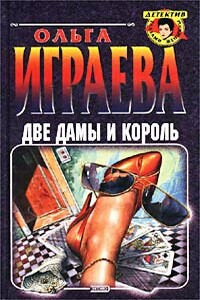
Крепко сцепились магнат Губин и вице-президент его издательского холдинга Булыгин. Дошло до того, что первый «заказал» второго. И Булыгин исчез. А следом за этим вдруг задушена в лифте жена Губина. Сотрудники холдинга не знают, что и думать: есть ли связь между двумя этими ошеломительными событиями?Косыми взглядами провожают они Регину Никитину, у которой явно роман с их шефом. Они ничего не скрывают от опера Занозина — и фигуры двух влюбленных сразу же попадают у сыщика на заметку. Других серьезных подозреваемых он пока не видит.

В книге рассказывается история главного героя, который сталкивается с различными проблемами и препятствиями на протяжении всего своего путешествия. По пути он встречает множество второстепенных персонажей, которые играют важные роли в истории. Благодаря опыту главного героя книга исследует такие темы, как любовь, потеря, надежда и стойкость. По мере того, как главный герой преодолевает свои трудности, он усваивает ценные уроки жизни и растет как личность.

В книге рассказывается история главного героя, который сталкивается с различными проблемами и препятствиями на протяжении всего своего путешествия. По пути он встречает множество второстепенных персонажей, которые играют важные роли в истории. Благодаря опыту главного героя книга исследует такие темы, как любовь, потеря, надежда и стойкость. По мере того, как главный герой преодолевает свои трудности, он усваивает ценные уроки жизни и растет как личность.

В книге рассказывается история главного героя, который сталкивается с различными проблемами и препятствиями на протяжении всего своего путешествия. По пути он встречает множество второстепенных персонажей, которые играют важные роли в истории. Благодаря опыту главного героя книга исследует такие темы, как любовь, потеря, надежда и стойкость. По мере того, как главный герой преодолевает свои трудности, он усваивает ценные уроки жизни и растет как личность.

В книге рассказывается история главного героя, который сталкивается с различными проблемами и препятствиями на протяжении всего своего путешествия. По пути он встречает множество второстепенных персонажей, которые играют важные роли в истории. Благодаря опыту главного героя книга исследует такие темы, как любовь, потеря, надежда и стойкость. По мере того, как главный герой преодолевает свои трудности, он усваивает ценные уроки жизни и растет как личность.